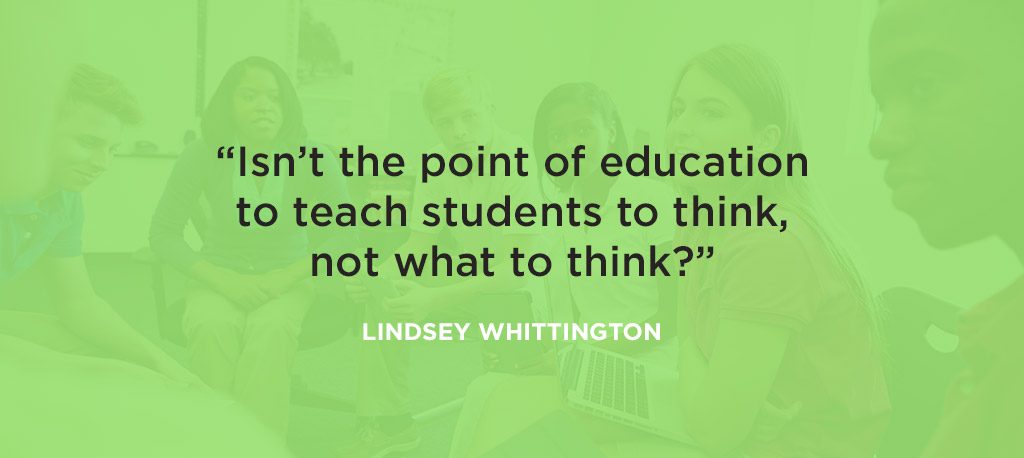A few weeks ago a newspaper editor from the Panhandle of Florida contacted the Intellectual Freedom Center with a challenge. Following the September school board meeting, the superintendent of the Dixie District Schools issued an Administrative Directive to all the district school directors and principals. The directive stated,
“As of September 8, 2017, no instructional materials (textbooks, library books, classroom novels, etc.) purchased and/or used by the school district shall contain any profanity, cursing, or inappropriate subject matter. This directive reflects the values of the Superintendent, School Board, and the community. However, I do realize that AP and Dual Enrollment classes may have set reading requirements that requirements that contain questionable materials that the local district does not have control over. These will be the only materials allowed to be used in our district, provided they do not substantially violate community standards.”
I’ve never seen such a comprehensive book banning!
As I understand it, a parental complaint about Ernest J. Gaines A Lesson Before Dying may have been what instigated such a ridiculous directive, one that flies in the face of three existing district policies on curriculum development, selection of texts, and reconsideration of texts.
NCTE wrote the superintendent and school board a letter standing up for The Students’ Right to Read, pointing out flaws in the directive, and noting that the action, which didn’t follow three school board policies, thereby undermined all the school board’s policies that could, it seems, be ignored at the will of the superintendent and school board. Many other letters were sent, by the National Coalition Against Censorship (NCTE signed on this one), the Office of Intellectual Freedom of the American Library Association, and the Florida Library Association. At the October 10 School Board Meeting, students spoke against the ban and the high school English department chair and teacher’s union president, Lindsey Whittington, made a strong plea for the Board to rescind the directive.
Despite all this, one member of the board replied, “We’ll take this stuff into consideration.”
While they’re considering, the Facebook page of the Dixie County Advocate is aflame with comments from members of the community whose views the directive does not represent. Golly, what an authentic purpose for writing!
Here are a few comment from the page:
“Banning books only makes kids want to read them even more. So I guess we should thank these jerks for encouraging our young people to read instead of being upset about them working so hard to dumb down our children. My grandchildren will be able to read whatever they want because I will buy them those forbidden books.”—Penny Williams
“As a high school student it angered me when they read the email to us. What HIGH SCHOOL student doesn’t know about ‘profanity, curiosity or inappropriate subject matter’? Please name one. I would understand if his was elementary students but high school come on. We are gonna learn about it one way or another!”
“This is insanity! My child loves to read and I often buy her books that are not available at school or the local library. I remember having to get her an ‘adult’ library card because she wanted to read books with more substance when she little. This is a slap in the face to parents who want their children to be literate and educated rather than locked in a box!”—Melanie Amrell
“Banning or restricting access to ‘challenged’ or ‘explicit’ material is such a deviation from the philosophy of American education and even of the Dixie County School Board, see link. The students of Dixie District Schools deserve equal access to instructional material approved by federal and state guidelines and not be subjected to the censorship of a few local officials hoping to reinforce their personal/moral agenda. If a directive like this is allowed then the district has no hope of producing truly competitive, well rounded individuals.”—Dylan
Well, you get the idea.
There has been no resolution as of this writing.

